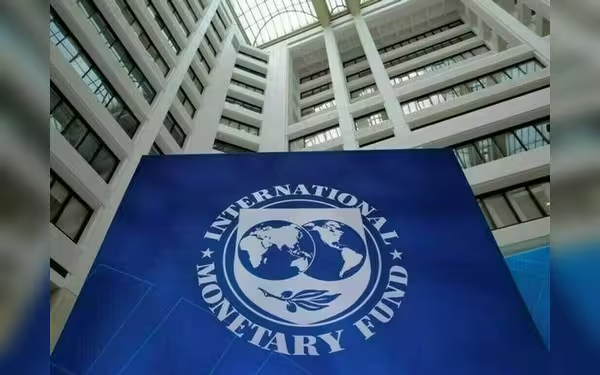Saturday, November 16, 2024 03:21 PM
Pakistan Secures $7 Billion IMF Bailout Deal
- Pakistan's 24th IMF bailout of $7 billion imminent.
- Finance Minister emphasizes need for economic transformation.
- Public-private partnerships crucial for sustainable growth.
 Image Credits: brecorder
Image Credits: brecorderPakistan is set to secure a $7 billion IMF bailout, with a focus on economic reforms and public-private partnerships for sustainable growth.
KARACHI: Pakistan is on the verge of securing its 24th bailout of US$7 billion from the International Monetary Fund (IMF), as announced by Federal Minister for Finance and Revenue, Senator Muhammad Aurangzeb. This significant financial support is expected to be finalized during the upcoming IMF Board meeting scheduled for September 25, 2024. The Finance Minister expressed a sense of optimism, suggesting that this could potentially be Pakistan’s last IMF program, provided the country adheres to the necessary structural changes outlined in the agreement.
During his address at the 21st Annual Excellence Awards hosted by CFA Society Pakistan, Aurangzeb urged the public to familiarize themselves with the details of the IMF agreement, which he stated will be made public on September 25. He emphasized that his five predecessors had struggled to secure a deal as favorable as the one currently on the table.
Highlighting the urgent need for economic transformation, Aurangzeb remarked, “We need to change the basic DNA of our import-based economy to achieve GDP growth beyond 4 percent.” He elaborated on key components of the latest IMF agreement, which include maintaining a tax-to-GDP ratio above 13 percent and initiating reforms in state-owned enterprises and the energy sector.
To meet the ambitious target of 40 percent tax growth, the government plans to digitalize the taxation system. This move aims to reduce human interaction and enhance transparency, ensuring that revenue collection is more efficient, especially from under-taxed and untaxed sectors. Furthermore, Aurangzeb revealed plans for further government restructuring, indicating that five additional ministries would be identified under a rightsizing initiative.
In addition to these reforms, Aurangzeb advocated for public-private partnerships in Public Sector Development Program (PSDP) projects. He stressed the importance of finding import substitutions and attracting Foreign Direct Investment (FDI) in export-driven projects, with a particular focus on the agriculture and IT sectors as key areas for economic growth.
Earlier in the event, Mohammad Shoaib, CFA, Founding President of CFA Society Pakistan, highlighted the society's achievement of producing over 1,000 CFA Charter-holders since its inception in 2002. He noted that the CFA charter is globally recognized as the gold standard in investment management, underscoring the importance of financial education in fostering economic stability.
As Pakistan navigates this critical juncture, the upcoming IMF agreement represents not just a financial lifeline but also an opportunity for the country to implement necessary reforms. The focus on digitalization, transparency, and public-private partnerships could pave the way for a more resilient economy. It is essential for all stakeholders, including the government, businesses, and citizens, to engage with these changes actively. By doing so, Pakistan can aspire to break free from the cycle of dependency on international bailouts and work towards sustainable economic growth.













